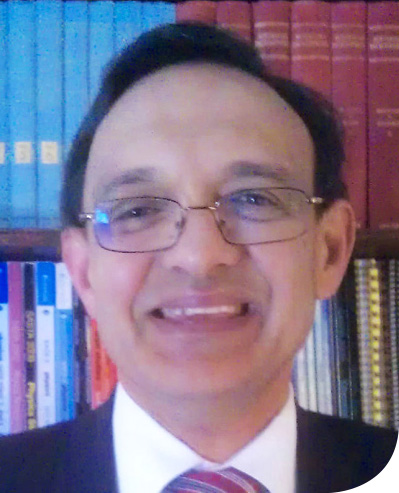Submission to the Legal Affairs and Safety Committee Inquiry into Serious Vilification and Hate Crimes
About Freedom for Faith
Freedom for Faith is a Christian legal think tank that exists to see religious freedom protected and promoted in Australia and beyond. It is led by people drawn from a range of denominational churches including the Australian Christian Churches, Australian Baptist Churches, the Presbyterian Church of Australia, the Seventh-day Adventist Church in Australia, and the Anglican Church Diocese of Sydney. It has strong links with, and works co-operatively with, a range of other Churches and Christian organisations in Australia.
Introduction
As a successful multi-cultural society, Australia has become home to people of various backgrounds, ethnicities, and religions. Freedom for Faith welcomes the Queensland Government’s interest in protecting and promoting a harmonious co-existence among its diverse population. Any proposed changes to existing law should be exercised with restraint, ensuring any assumed benefits do not produce unintended consequences, cause unreasonable limitations to existing freedoms, or contravene international human rights guarantees.
International Human Rights Instruments
As a signatory to the ICCPR (International Covenant on Civil and Political Rights), Australia is bound to abide by its various Articles. Of particular relevance are various provisions between Articles 18 and 201, namely
Article 18
1. Everyone shall have the right to freedom of thought, conscience and religion. This right shall include freedom to have or to adopt a religion or belief of his choice, and freedom, either individually or in community with others and in public or private, to manifest his religion or belief in worship, observance, practice and teaching.
Article 19
1. Everyone shall have the right to hold opinions without interference.
2. Everyone shall have the right to freedom of expression; this right shall include freedom to seek, receive and impart information and ideas of all kinds, regardless of frontiers, either orally, in writing or in print, in the form of art, or through any other media of his choice.
3. The exercise of the rights provided for in paragraph 2 of this article carries with it special duties and responsibilities. It may therefore be subject to certain restrictions, but these shall only be such as are provided by law and are necessary:
(a) For respect of the rights or reputations of others;
(b) For the protection of national security or of public order (ordre public), or of public health or morals.
Article 20
2. Any advocacy of national, racial or religious hatred that constitutes incitement to discrimination, hostility or violence shall be prohibited by law.
Where proposals in the Options paper are incompatible with these Articles, they must be considered as inconsistent with our obligations to international law. This is underscored by the fact that the Queensland Human Rights Act 2019 reflects many of the above provisions in the ICCPR.
Article 19(3) above only allows for restrictions on free expression where it is necessary to support the rights or reputations of others, for the protection of national security, public order, public health or public morals. The Committee should ensure these criteria are adhered to where hate-speech is being defined in law.
Guidance is provided by the Rabat Plan of Action, a United Nations workshop which considered ‘the distinction between freedom of expression and incitement to hatred.’2 The UN High Commissioner at the time emphasised that ‘any limitations to this fundamental freedom [of expression] must remain within strictly defined parameters flowing from the international human rights instruments [Article 19(3)].’3
Further, the United Nations Strategy and Plan of Action on Hate Speech was launched on June 2019 in response to ‘current alarming trends of growing xenophobia, racism and intolerance, violent misogyny, anti-Semitism and anti-Muslim hatred around the world.’4
The Special Rapporteur noted that
‘it is important to emphasize that expression that may be offensive or characterized by prejudice and that may raise serious concerns of intolerance may often not meet a threshold of severity to merit any kind of restriction. There is a range of expression of hatred, ugly as it is, that does not involve incitement or direct threat, such as declarations of prejudice against protected groups. Such sentiments would not be subject to prohibition under the International Covenant on Civil and Political Rights or the International Convention on the Elimination of All Forms of Racial Discrimination, and other restrictions or adverse actions would require an analysis of the conditions provided under article 19(3) of the Covenant.’5
It is important the Committee ensure that any of the proposed recommendations in the Options paper meet the thresholds within Article 19(3) of the ICCPR.
United Kingdom Hate Crime Scrutiny Panels
Recommendation 7 in the Options paper proposes to ‘Introduce hate crime scrutiny panels, based on the United Kingdom model.’ These panels have proven to be contentious after several years in operation, where ‘non-crime hate incidents’ are placed on the permanent records of citizens on the basis of allegations alone.
England and Wales currently define hate speech as ‘any criminal offence which is perceived, by the victim or any other person, to be motivated by a hostility or prejudice towards someone based on a personal characteristic.’6 Such subjective standards have led to 120,000 recorded incidents in the five years leading up to December 2020.7 No evidence is required for a complaint to be successful, beyond the belief an incident has been motivated by hate. Home Secretary of the United Kingdom Priti Patel has requested the procedures be reviewed, as these records which last six years have jeopardised careers and are expending considerable police resources.8
The Committee should reconsider whether these standards are commensurate with Articles 19 and 20 of the ICCPR, and whether the bad fruit of these policies raises sufficient doubts about their efficacy.
Conclusion
The language and phrasing of the Articles within the ICCPR have been deliberately calibrated to balance various human rights considerations. As signatories to this treaty, Australian legislators, including within this Committee, should consult these articles as a benchmark for policy decisions.
Recommendation 7 within the Options paper contains a fraught proposal from another jurisdiction, which appears to have created more problems than have been solved. Such over-reaching mechanisms could result in the stifling of legitimate, dissenting opinions. These ‘chilling’ effects would cause average Australians to self-censor their otherwise sincere cultural and political beliefs.
It should not be forgotten that the law is only one of many mechanisms available to protect and promote diversity, unity, and multi-culturalism in Australia. The law is an inappropriate means to address broader structural problems, such as outdated education curriculums, Balkanised communities, or the virtuous formation of our youth.
We encourage the Committee to consider this prior to proposing any additional laws.
1 https://www.ohchr.org/en/professionalinterest/pages/ccpr.aspx
2 https://www.ohchr.org/en/issues/freedomopinion/articles19-20/pages/index.aspx
3 A/HRC/22/17/Add.4 (11 January 2013) [9]
4 https://www.un.org/en/genocideprevention/hate-speech-strategy.shtml
5 https://www.ohchr.org/Documents/Issues/Opinion/A_74_486.pdf
6 https://www.gov.uk/government/statistics/an-overview-of-hate-crime-in-england-and-wales




